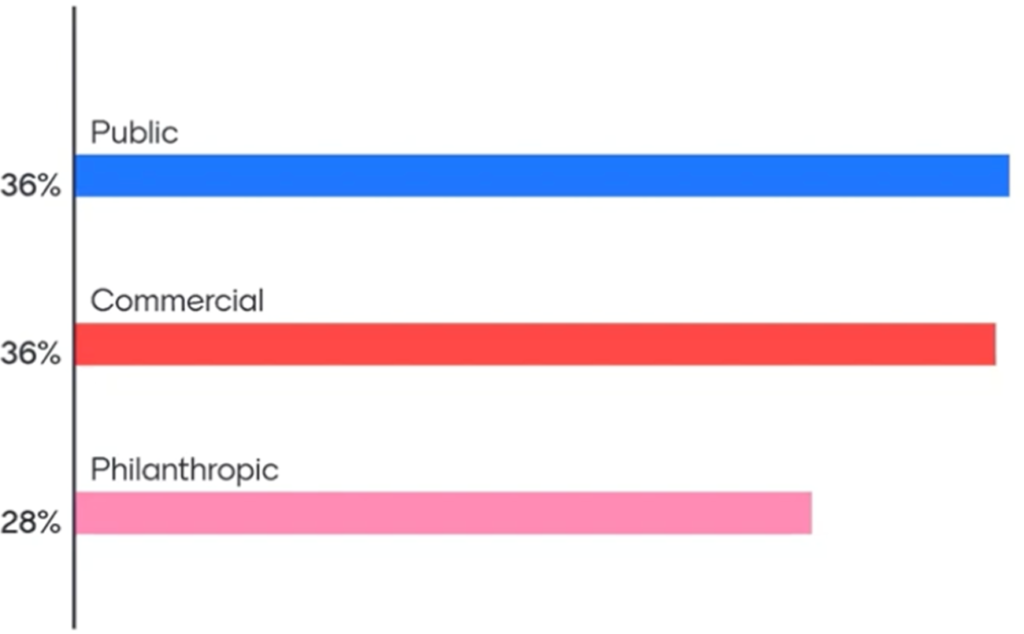In its 15th year, Heritage Debate 2024 brought sector leaders, professionals and volunteers together to share cross-sector insights, make connections and find solutions to the key challenges facing heritage today.
On Wednesday 20th November, 2024’s debate, ‘Balancing the Books: How should the heritage sector be funded?’, saw an expert panel make a case for the benefits and pitfalls of public, private and philanthropic funding models.
In 2024 Heritage Debate was free for all our delegates, making it the most accessible and most widely attended Heritage Debate yet, with over 400 attendees.
The debate was chaired by Carole Souter CBE, Chair of the Heritage Alliance and formerly Chief Executive of the National Lottery Heritage Fund, where she oversaw the distribution of billions of pounds of investment in culture, heritage and the environment. It featured:
- Caroline Underwood OBE, CEO of the Philanthropy Company – representing philanthropic and charitable giving.
- Claudia Kenyatta CBE, Director of Regions at Historic England – representing public funding.
- Alex and Oli Khalil-Martin, custodians of the Crooked House, Lavenham – representing commercial income generation.
Together the panel and audience shared their views and decide the outcome of the debate in real time using interactive tools.
The event also featured research insights from Ecclesiastical Insurance, our corporate partner and event sponsor, and was also generously sponsored by the Architectural Heritage Fund (AHF).

Features From Heritage Debate
The main answers from attendees when answering the question on their organisation’s source of income were government, trusts and foundations, membership grant funding, and donations.
Then, as part of our digital programme, thanks to the work of The Historic Environment Forum in partnership with The Heritage Alliance, a series of case studies which share different models of funding heritage were showcased. From community ownership projects to national heritage assets, you can browse the case studies in the grid on our page here.

These topics set the stage for the Debate to follow.
Highlights of the Debate
Claudia Kenyatta of Historic England reflected on the complex and exhausting process applicants face when gathering evidence for funding. In response, Historic England is exploring grant options to simplify this process and build confidence among other potential funders.
Caroline Underwood from The Philanthropy Company emphasised the solitary nature of fundraising and the increasing competition for limited resources. She noted the particular difficulties in securing funding for core operational costs and stressed the importance of clearly articulating impact to potential funders. She noted several resources exist to assist heritage organisations, including the Heritage Funding Directory and webinars from the Rebuilding Heritage Programme.
Alex & Oli Khalil-Martin, owner of the Crooked House argued it’s important to get people to engage with heritage from a very early age and to see it as a part of their broader leisure programme and as a part of wider cultural activities. They argued that having people engage with the profile & richness of the sector will help private heritage enterprise.
Insights from Ecclesiastical
The event also showcased research insights from Ecclesiastical Insurance, presented by their Customer Segment Director Laura Carter, revealing that heritage sites are currently primarily concerned with rising costs, building maintenance and repairs, and the need to diversify to attract more visitors. Additionally, the discussion covered key challenges such as limited grant availability and planning restrictions.
Insights from the AHF
Chair of Valley Heritage, Stephen Anderson, showcased research insights on social investment and an alternative investment model. He unpacked a case study of the Former Lancashire & Yorkshire Bank in Bacup, that used a £195k loan from the Architectural Heritage Fund to support the acquisition – ultimately creating great value for the local community.
The Debate Results
After our expert panel made their case for the benefits and pitfalls of public, private and philanthropic funding models, participants then voted for the ideal mix. Public and commercial funding came out at 36% each supported by 27% of philanthropic funding.

Event resources
The Heritage Debate 2024 virtual programme contains funding model case studies, panellist biographies, our event supporters and ways to engage with our events. You can see our programme here.
Heritage Debate 2024 slide deck
Promoted by Ecclesiastical, the Movement For Good Prize Draw opened on 21 January 2025. Learn more and nominate a charity and help them to win £1,000 for their organisation.
Sponsors

A huge thank you to our Corporate Partner, Ecclesiastical Insurance, for supporting the Heritage Debate 2024. Learn more about Ecclesiastical Insurance and their work in the heritage sector here.

We are also grateful to the Architectural Heritage Fund (AHF) for generously sponsoring this event, as well as to the many supporters and media partners from within the Heritage Alliance membership and across the sector. Find out more about the event supporters on the Heritage Debate 2024 webpage.
More from the Heritage Alliance
The Heritage Alliance brings together over 200 member organisations, representing the full diversity of the sector. Discover our three membership types and the benefits they can offer your organisation here.
Our bi-monthly newsletter, Heritage Update, reaches 14,000 inboxes. Subscribe for free, advertise from £165, or enjoy free advertising as a member.
